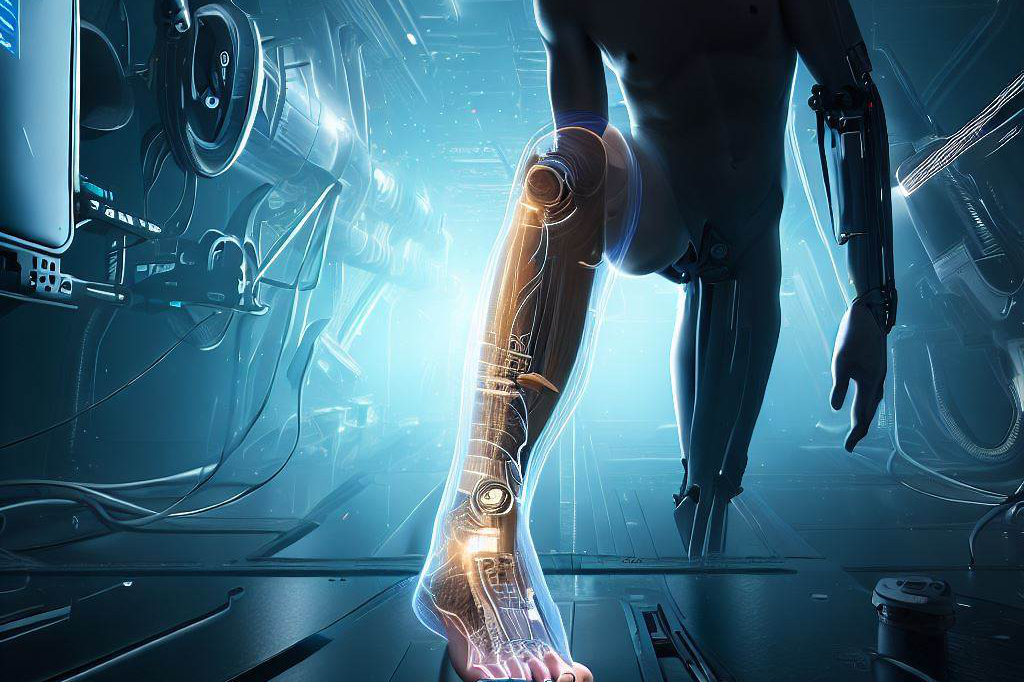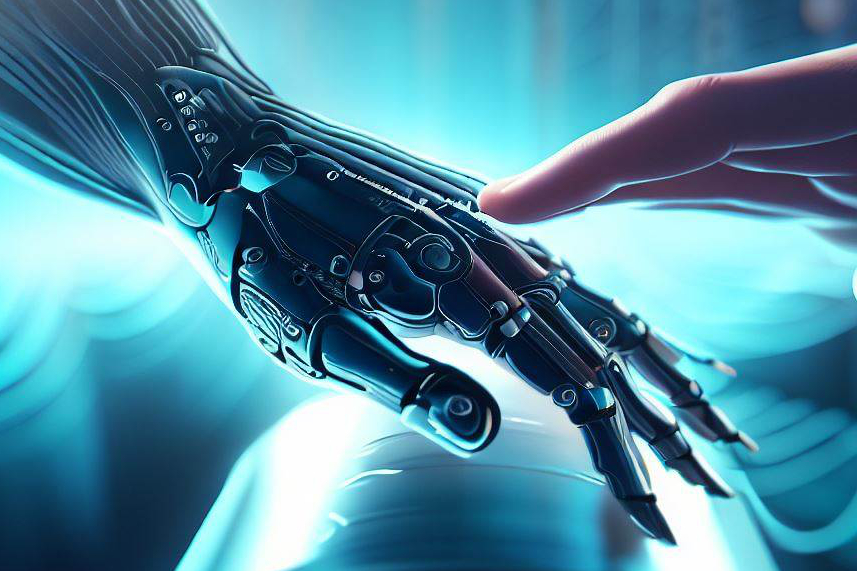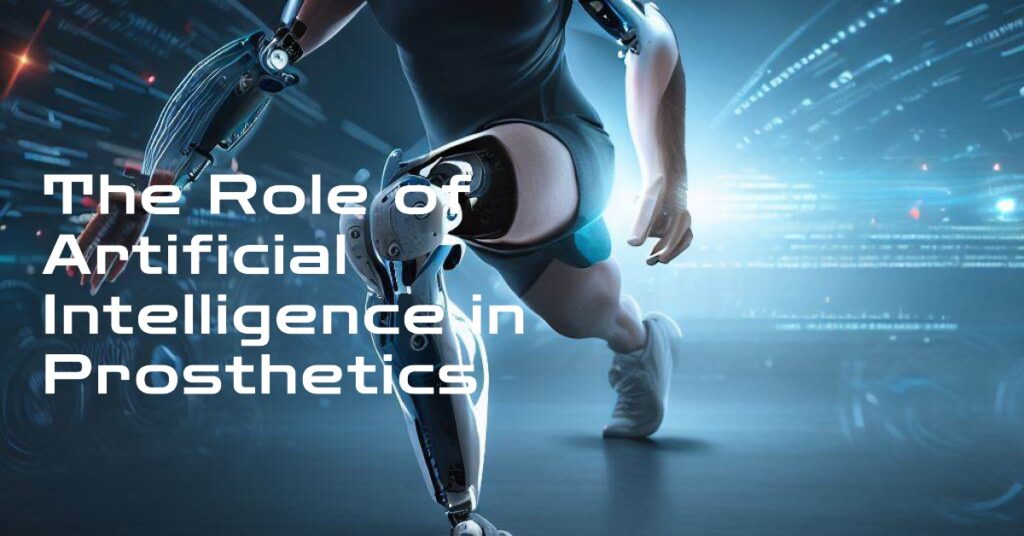Enhancing Lives: The Role of Artificial Intelligence in Prosthetics
Artificial intelligence (AI) has become a game-changer in various industries, revolutionizing the way we approach complex challenges. In the field of prosthetics, AI has emerged as a transformative force, enhancing the lives of individuals with limb loss. In this article, we will explore how artificial intelligence is used in the field of prosthetics, providing a glimpse into the remarkable advancements that have empowered amputees to regain their mobility and independence.
1. Introduction to AI in Prosthetics

The integration of artificial intelligence in prosthetics marks a significant milestone in the quest to create more functional and intuitive artificial limbs. AI technology enables prosthetic devices to learn and adapt to the unique needs and movements of each individual, making them more responsive and natural in their functionality. By leveraging machine learning algorithms and data analysis, AI has opened up new possibilities in prosthetic design, control systems, and user experience.
2. Advanced Prosthetic Control Systems
Artificial intelligence has played a pivotal role in advancing prosthetic control systems, allowing for more precise and intuitive movements. Traditional prosthetic limbs often rely on mechanical switches or limited pre-programmed patterns, which can be restrictive for users. However, AI-powered prosthetic control systems utilize sensors, actuators, and advanced algorithms to interpret the user’s intent and translate it into natural and fluid movements.
By harnessing AI’s capabilities, these systems can adapt to the user’s muscle signals or residual limb movements, constantly learning and improving over time. This personalized and adaptive approach enables users to perform complex tasks, such as grasping objects with different shapes and sizes, manipulating delicate items, or even playing musical instruments. AI-driven prosthetic control systems are empowering individuals to regain dexterity and engage in activities they once thought were beyond their reach.
3. Intelligent Sensory Feedback
Another remarkable application of AI in prosthetics is the development of intelligent sensory feedback mechanisms. Losing a limb not only means losing physical capabilities but also the ability to sense and interact with the world in the same way. However, AI-enabled prosthetics can simulate the sensation of touch, providing users with a more immersive and intuitive experience.
Through sophisticated algorithms, AI analyzes data from sensors embedded in the prosthetic limb and translates it into meaningful sensory feedback. This allows users to perceive sensations such as pressure, texture, temperature, and even pain in their artificial limb. The ability to feel and respond to sensory feedback enhances users’ control, coordination, and confidence, enabling them to interact with their environment more naturally.
4. Enhancing Personalization and User Experience
Artificial intelligence has significantly improved the personalization and overall user experience of prosthetic devices. AI algorithms can process and interpret vast amounts of data collected from users, including movement patterns, preferences, and contextual information. This data-driven approach allows prosthetists to customize prosthetic devices to fit the unique needs and lifestyle of each individual.
By leveraging AI, prosthetists can optimize the alignment, fit, and functionality of the prosthetic limb, resulting in greater comfort, stability, and usability for the user. Moreover, AI-driven analytics can continuously monitor and analyze data from the prosthetic device, providing valuable insights for further improvements and fine-tuning. This iterative process ensures that prosthetic devices evolve alongside the user, maximizing their potential and enhancing their quality of life.
5. Future Possibilities and Ethical Considerations

As AI continues to evolve, the future of prosthetics holds even more promising possibilities. Advancements in AI-powered prosthetics are on the horizon, including the potential integration of brain-computer interfaces (BCIs), allowing direct control of the artificial limb through neural signals, and intuitively, further blurring the line between human and artificial capabilities.
However, with these remarkable advancements come important ethical considerations. Ensuring the privacy and security of user data collected by AI-powered prosthetics is crucial. Striking the right balance between customization and affordability is also essential to ensure that these technologies are accessible to a broader range of individuals. Additionally, addressing the potential biases in AI algorithms and the need for diversity in dataset representation is vital to prevent any unintentional disparities or discrimination in prosthetic design and functionality.
Collaboration between experts in the fields of prosthetics, AI, and user feedback is crucial for driving innovation and addressing these ethical considerations. By involving individuals with limb loss in the design and development process, their unique insights and experiences can shape the future of AI-powered prosthetics, ensuring that the technology truly meets their needs and enhances their lives.
Artificial intelligence has revolutionized the field of prosthetics, offering unprecedented advancements in control systems, sensory feedback, personalization, and user experience. With AI, prosthetic devices have become more intuitive, adaptable, and functional, enabling individuals with limb loss to regain their mobility and independence.
As AI continues to evolve, the future holds even greater possibilities for seamless integration between humans and artificial limbs. However, ethical considerations remain paramount, requiring a collaborative approach to ensure privacy, accessibility, fairness, and inclusivity. By harnessing the power of AI responsibly, we can continue to enhance lives and empower individuals with prosthetic devices, enabling them to embrace a future full of possibilities.

C M, a seasoned editor, journalist, and consultant, is deeply fascinated by the convergence of technology, space, and the future of humanity.
With a particular interest in transhumanism, futurology, and the philosophical and ethical dimensions of these domains, C M serves as the lead contributor to TranscendSphere and SpaceSpotlight.
When not penning insightful articles on these rapidly evolving fields, C M indulges in their love for podcasts and books, proudly embracing their status as a ‘Happy Nerd Extraordinaire!’





